Obsessive Compulsive Disorder (OCD) is a chronic psychiatric disorder marked by intrusive thoughts and compulsive behaviors. In the media, OCD is often portrayed as merely a specific kind of quirkiness or attention to order and organization. However, as practicing clinicians see firsthand, it can be a debilitating illness that leads to severe functional impairment. In conventional psychiatry, standard treatments include Selective Serotonin Reuptake Inhibitors (SSRIs) and psychotherapies including Cognitive Behavioral Therapy (CBT) and Exposure and Response Prevention (ERP). In some cases, these treatments lead to significant improvement in symptoms. Far too often, however, patients are left feeling overly medicated, bogged down by side effects, and worst of all, still struggling with severe obsessional thinking and compulsive behaviors.
Functional psychiatry takes a whole-person approach, exploring and addressing potential root causes including chronic inflammation, nutrient deficiencies, gut-brain axis dysfunction, chronic infections, autoimmune disorders, and neurotransmitter imbalances. While exploring the myriad possible root causes for OCD is beyond the scope of this article, we will discuss some integrative strategies for managing OCD symptoms. Specifically, many patients and their families are increasingly curious to learn about nutraceuticals that have evidence to support their use in OCD. An innovative, non-pharmacological treatment that has been gaining traction in OCD treatment will also be reviewed.
Inositol for OCD
Inositol is an unsung hero in the integrative psychiatry toolbox. Previously considered a B-vitamin, inositol exerts its powerful impact on mental health via its second-messenger activity, augmenting serotonin signaling. In one study, inositol at a dose of 18 grams per day led to improvements in OCD symptoms as evidenced by lower scores on the Yale-Brown Obsessive Scale (Y-BOCS), the gold standard screening tool for assessing OCD severity (Fux et al., 1996). Most of the available literature indicates that a dose of 12-18 grams per day is needed to treat OCD symptoms, though lower doses may be effective in some cases. Titrating up slowly can help mitigate GI distress that can occur with higher doses.
NAC for OCD
N-acetylcysteine, referred to as NAC, may be the best-known supplement for OCD and for good reason. Some researchers speculate that an imbalance in the neurotransmitters GABA and glutamate may play a role in the pathogenesis of OCD. As a glutamine modulator, NAC can restore balance of these key neurotransmitters in the brain. It may also work by reducing oxidative stress and inflammation in the brain via its potent anti-oxidant and anti-inflammatory capabilities (Carollo et al., 2024). In a systemic review published in Clinical Psychopharmacology and Neuroscience, the authors concluded that NAC, in doses between 2,400 and 3,000mg per day, can reduce OCD symptoms with minimal adverse effects (Oliver et al., 2015).
Micronutrients & OCD
Micronutrients, including vitamins and minerals, are required for optimal brain and body function. They support critical biochemical processes including neurotransmitter synthesis and detoxification. If we don’t have enough of them, specifically vitamins like Vitamin B12 and minerals like magnesium, iron, and zinc, psychiatric symptoms can manifest. “Test, don’t guess” is a popular phrase in functional medicine and it’s critical to keep in mind when working with patients with OCD. Running a comprehensive micronutrient analysis can help clinicians identify deficiencies or insufficiencies that may be contributing to symptoms.
Omega 3s & OCD
Omega 3 fatty acids, specifically EPA and DHA, are some of the most well-studied compounds in the functional medicine arsenal. Omega 3s are particularly important for brain health; they support neurotransmitter signaling and receptor function and low levels have been associated with several mental health conditions (DiNicolantonio & O’Keefe, 2020). While data to support use of Omega 3 supplements in OCD is limited, their robust anti-inflammatory and neuroprotective effects make them a sound addition to any functional medicine treatment plan for OCD.
TMS for OCD
While not a supplement, Transcranial Magnetic Stimulation (TMS) offers a promising non-pharmacological path to healing for those struggling with OCD. Especially for those who’ve failed traditional antidepressants and augmentation strategies, TMS is an innovative neuromodulation treatment that uses magnets to stimulate specific parts of the brain implicated in mental health issues like depression, anxiety, and OCD. In an umbrella review of meta-analyses published in CNS Spectrum, the authors concluded that TMS protocols targeting the dorsolateral prefrontal cortex (DLPFC) and supplementary motor area (SMA) consistently improved OCD symptoms (Kar et al., 2024). Fortunately, many insurance companies cover TMS treatment, which has led to increased access to treatment.
Embracing Alternative Treatments for OCD
While SSRIs and psychotherapy remain the mainstays in OCD treatment, patients and families are increasingly motivated to pursue alternative and complementary approaches. Functional psychiatry moves beyond the prescription pad, offering solutions that address a patient’s unique biology and root causes. Supplements, including micronutrients, amino acids, essential fatty acids, and botanicals, can be leveraged as part of a larger treatment plan to reduce symptom burden and increase quality of life.
Ready to transform patient outcomes with more functional interventions like this? Learn from global experts and enroll now in our comprehensive Fellowships. Book a 1:1 call now to learn more and inquire about scholarships.
References
- Carollo M, Carollo N, Montan G. The promise of N-acetylcysteine in the treatment of obsessive-compulsive disorder. CNS Neurosci Ther. 2024;30(2):e14653. doi:10.1111/cns.14653
- DiNicolantonio JJ, O’Keefe JH. The Importance of Marine Omega-3s for Brain Development and the Prevention and Treatment of Behavior, Mood, and Other Brain Disorders. Nutrients. 2020;12(8):2333. Published 2020 Aug 4. doi:10.3390/nu12082333
- Fux M, Levine J, Aviv A, Belmaker RH. Inositol treatment of obsessive-compulsive disorder. Am J Psychiatry. 1996;153(9):1219-1221. doi:10.1176/ajp.153.9.1219
- Kar SK, Agrawal A, Silva-Dos-Santos A, Gupta Y, Deng ZD. The Efficacy of Transcranial Magnetic Stimulation in the Treatment of Obsessive-Compulsive Disorder: An Umbrella Review of Meta-Analyses. CNS Spectr. 2024;29(2):109-118. doi:10.1017/S1092852923006387
- Oliver G, Dean O, Camfield D, et al. N-acetyl cysteine in the treatment of obsessive compulsive and related disorders: a systematic review. Clin Psychopharmacol Neurosci. 2015;13(1):12-24. doi:10.9758/cpn.2015.13.1.12


